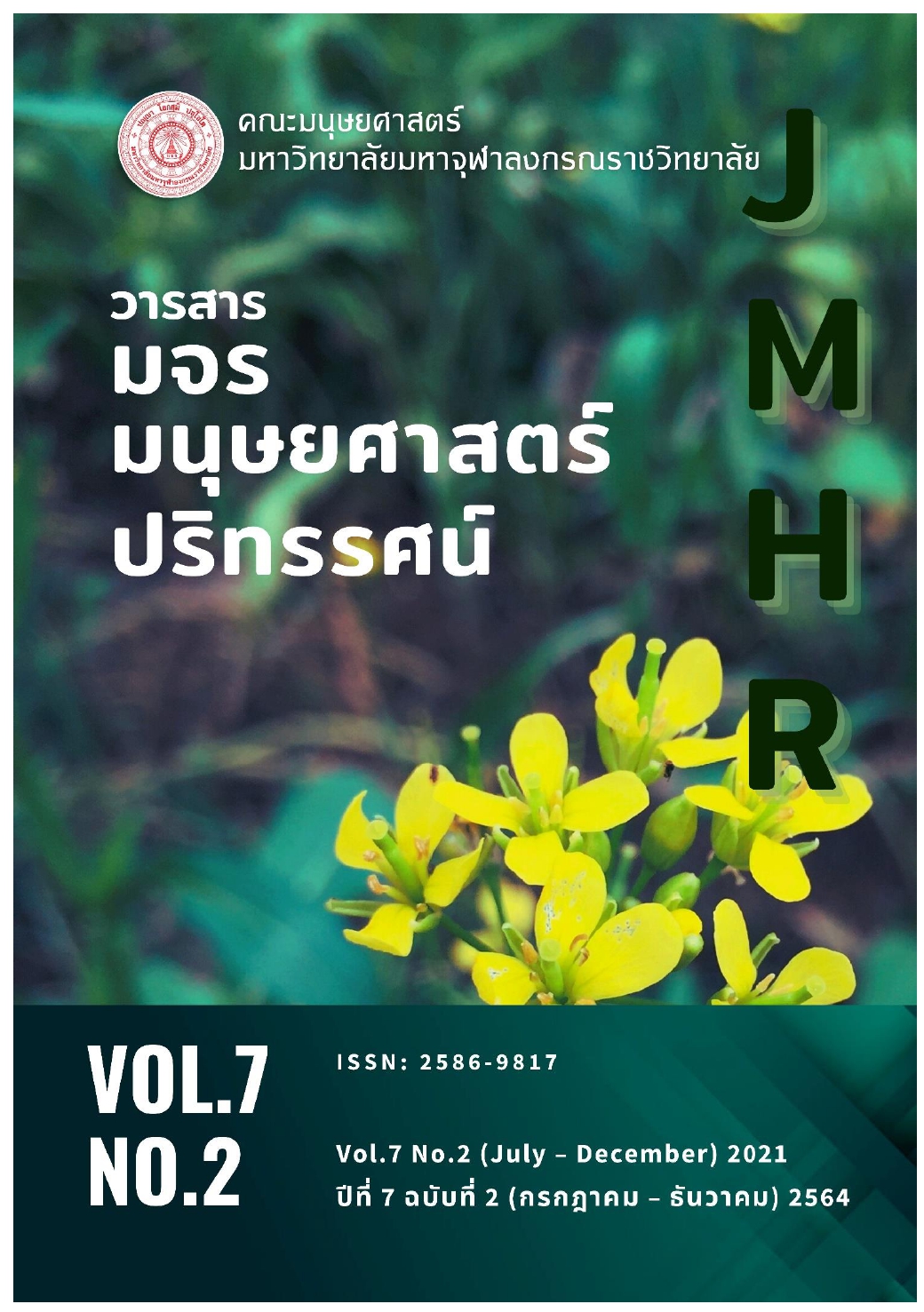หลักคำสอนทางพระพุทธศาสนาเพื่อความมั่นคงทางเศรษฐกิจของชีวิต
คำสำคัญ:
หลักคำสอนทางพุทธศาสนา, เศรษฐกิจ, ความมั่นคงในชีวิตบทคัดย่อ
บทความนี้มีจุดมุ่งหมายให้เห็นถึงความสำคัญในการใช้หลักธรรมคำสอนขององค์สมเด็จพระสัมมาสัมพุทธเจ้า ในการสร้างความพอใจในสิ่งที่ตนมีอยู่ ไม่ฟุ้งเฟ้อ เป็นหลักธรรม หรือหลักคำสอน ที่พระบาทสมเด็จพระมหาภูมิพลอดุลยเดชมหาราชบรมนารถบพิตร รัชกาลที่ 9 ได้น้อมนำมาใช้เป็นหลักในการปฏิบัติตนและการทรงงาน ซึ่งพระองค์ท่านทรงนำมาเผยแพร่เป็นหลักเศรษฐกิจพอเพียงที่ทุกคนรู้จักกันดี
จากสถานการณ์ทางเศรษฐกิจปัจจุบันที่ได้รับผลกระทบอย่างรุนแรงจากการแพร่ระบาดของเชื้อไวรัสโควิด 19 หลายบริษัทต้องปิดกิจการ หลายคนต้องตกงาน เกิดผลกระทบทางเศรษฐกิจเป็นวงกว้าง จากที่ประชาชนส่วนใหญ่มีปัญหาหนี้สินเดิมอยู่แล้ว ยิ่งเพิ่มพูนปัญหาทางการเงินให้หนักขึ้นไปอีก บางรายเมื่อหาทางออกไม่ได้ถึงกับฆ่าตัวตายเพื่อหนีปัญหาด้านหนี้สิน ส่วนพนักงานที่เคยมีรายได้ประจำก็ต้องเผชิญกับรายได้ที่ขาดหายไปจากการตกงาน ต้องพยายามปรับตัวเพื่อหารายได้เข้ามาเลี้ยงครอบครัว บางรายที่ไม่เคยมีเงินออมหรือมีน้อยก็จะเดือดร้อนมากกว่ารายที่มีเงินออมและรู้จักประหยัด บางรายต้องไปกู้หนี้ยืมสิน ยิ่งเป็นการก่อปัญหา และเพิ่มภาระดอกเบี้ยซึ่งผู้ให้กู้จะคิดดอกเบี้ยในอัตราที่สูงมาก ยิ่งถ้าเป็นการกู้นอกระบบ ดอกเบี้ยยิ่งสูง ปัญหายิ่งหนัก ส่งผลให้ปัญหาหนี้ครัวเรือนของประเทศที่ย่ำแย่ และมีหนี้สูงอยู่แล้ว ให้ยิ่งสูงขึ้นไปอย่างต่อเนื่องอีก
จากปัญหาดังกล่าว ผู้เขียนจึงมีความประสงค์ที่จะให้บทความนี้ ได้เป็นประโยชน์ต่อบุคคลทั่วไป โดยใช้หลักธรรมสอนของพระพุทธองค์ และหลักเศรษฐกิจพอเพียงมาปรับใช้เพื่อให้ชีวิตมีความสุข ความพอใจ พอสมควร ไม่เดือดร้อน ไม่เป็นหนี้เป็นสิน มีเงินทองเหลือเก็บไว้ใช้ยามจำเป็น และในยามเข้าสู่วัยชราแม้จะไม่มากมาย แต่ก็พอเพียงกับตน
เอกสารอ้างอิง
บัญชา ตรีบวรสมบัติ. (2563). Certified Financial Planner-CFP บริษัทหลักทรัพย์จัดการกองทุนรวม บัวหลวง. สืบค้น 16 มิถุนายน 2564, จาก https://mgronline.com/mutualfund/detail/9630000000233
มหาวิทยาลัยมหาจุฬาลงกรณราชวิทยาลัย. (2536). พระสุตตันตปิฏก เล่มที่ 3 ฑีฆนิกาย ปาฏิกวรรค. สืบค้น 10 มิถุนายน 2564, จาก http://www.geocities.ws/tmchote/tpd-mcu/
“________”. (2536). พระไตรปิฎกเล่มที่ 4 พระวินัยปิฎกเล่มที่ 4 มหาวรรค. สืบค้น 10 มิถุนายน 2564, จาก http://www.geocities.ws/tmchote/tpd-mcu/
พระพรหมคุณาภรณ์ (ประยุทธ์ ปยุตฺโต). (2558). พระธรรมปิฎก พจนานุกรมพุทธศาสตร์ ฉบับประมวลธรรม. สืบค้น 16 มิถุนายน 2564, จาก https://www.watnyanaves.net/uploads/File/books/pdf/dictionary_of_buddhism_pra-muan-dhaama.pdf
ภารกิจแก้หนี้คนไทย. (2561). ธนาคารแห่งประเทศไทย. สืบค้น 10 มิถุนายน 2564, จาก https://www.bot.or.th/Thai/BOTMagazine/Pages/256302BOTPeople.aspx






